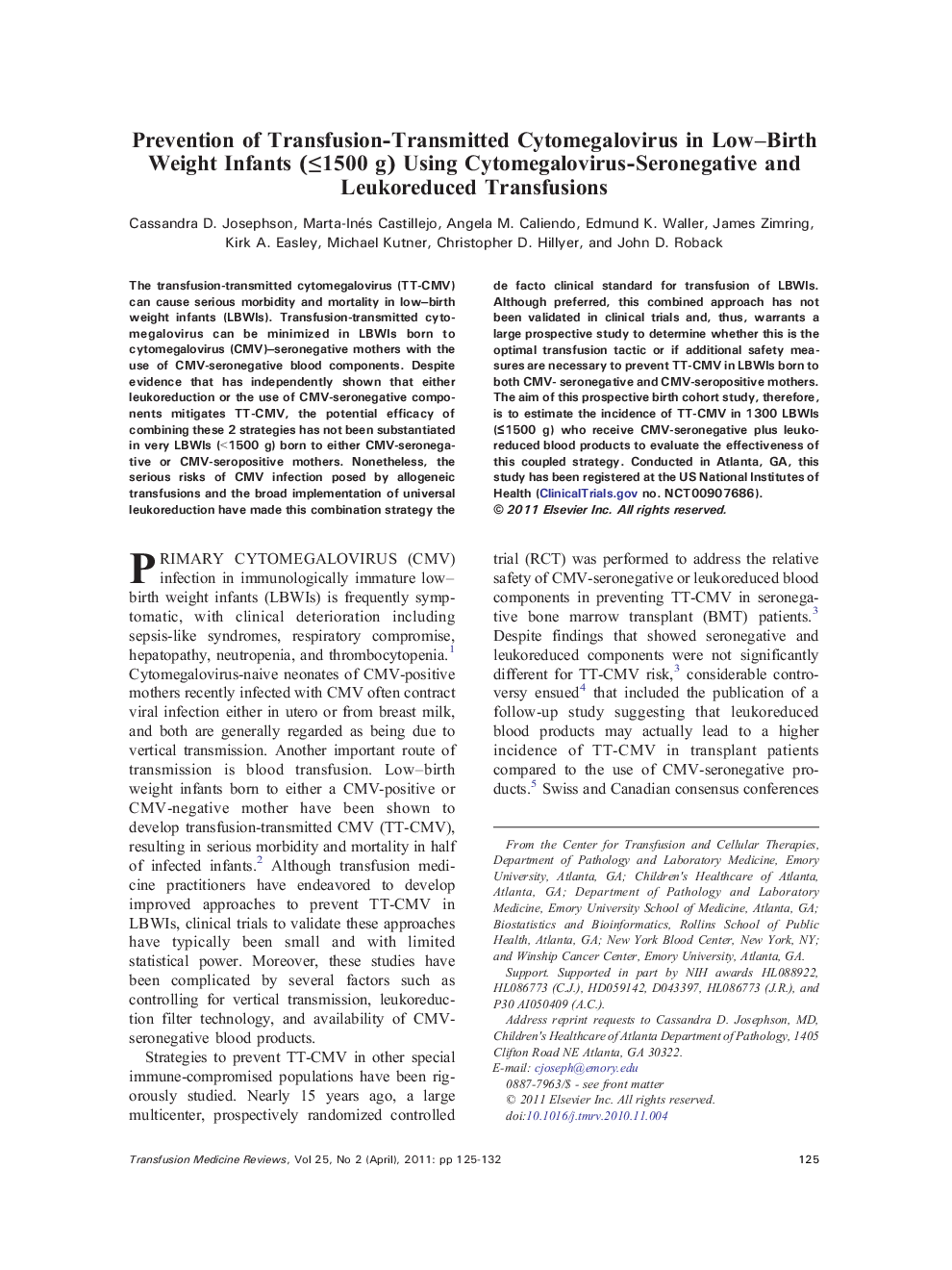| Article ID | Journal | Published Year | Pages | File Type |
|---|---|---|---|---|
| 3336901 | Transfusion Medicine Reviews | 2011 | 8 Pages |
The transfusion-transmitted cytomegalovirus (TT-CMV) can cause serious morbidity and mortality in low–birth weight infants (LBWIs). Transfusion-transmitted cytomegalovirus can be minimized in LBWIs born to cytomegalovirus (CMV)–seronegative mothers with the use of CMV-seronegative blood components. Despite evidence that has independently shown that either leukoreduction or the use of CMV-seronegative components mitigates TT-CMV, the potential efficacy of combining these 2 strategies has not been substantiated in very LBWIs (<1500 g) born to either CMV-seronegative or CMV-seropositive mothers. Nonetheless, the serious risks of CMV infection posed by allogeneic transfusions and the broad implementation of universal leukoreduction have made this combination strategy the de facto clinical standard for transfusion of LBWIs. Although preferred, this combined approach has not been validated in clinical trials and, thus, warrants a large prospective study to determine whether this is the optimal transfusion tactic or if additional safety measures are necessary to prevent TT-CMV in LBWIs born to both CMV- seronegative and CMV-seropositive mothers. The aim of this prospective birth cohort study, therefore, is to estimate the incidence of TT-CMV in 1300 LBWIs (≤1500 g) who receive CMV-seronegative plus leuko-reduced blood products to evaluate the effectiveness of this coupled strategy. Conducted in Atlanta, GA, this study has been registered at the US National Institutes of Health (ClinicalTrials.gov no. NCT00907686).
